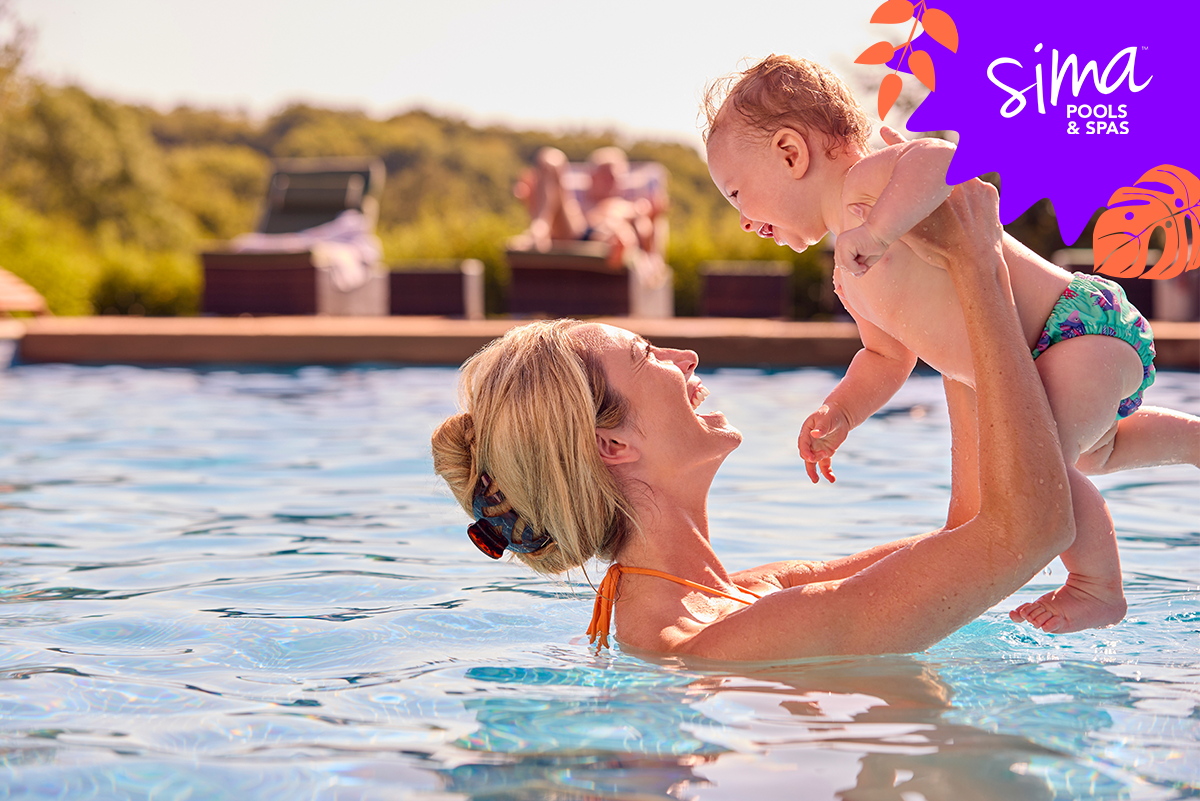Choosing a pool heater

Pools are cool, but heated pools are awesome! How to choose between a heat pump and a gas heater? Here’s what our experts have to say. Whether it’s for an inground or an above-ground pool, the first step in choosing a pool heater is to identify your needs while considering the following:
- Physical location of the pool
- Seasonal usage
- Desired water temperature
- External factors (wind, shade, etc.)
Heat pumps
It’s worth noting that heat pumps are the most energy-efficient and cost-effective solution for heating pools. They do, however, have one significant drawback: for optimal performance, the temperature of the surrounding air must be rather high. Heat pumps don’t work so well when temperatures drop below 12 ℃. For those looking to stretch out their swimming season from early May to late September, heat pumps might make it difficult to keep the water in your pool warm. In fact, heat pumps can’t run in the colder weather often seen in May and October.
Gas pool heaters
Gas pool heaters heat pool water in a fraction of the time it takes for heat pumps, but on the downside, they rate poorly in terms of energy efficiency. These machines waste lots of gas: they use a lot of propane (approximately 1 L of propane per hour per 100,000 BTU), with only 85% being used to produce heat. This can lead to hefty bills for people who want to heat their pool all year long.
Still, gas heaters remain your best option for heating your pool rapidly once in a while during the summer. Also, unlike heat pumps, gas heaters run smoothly in colder weather, making them the perfect choice for extending the pool season.
Hybrid systems
Some people turn to hybrid heating systems for their pool—they install a gas pool heater along with a heat pump. These systems allow you to stretch out your pool season using the gas heater, and to save on heating costs during the summer months using the heat pump.
Choosing the right heater
The model that’s best for you depends on the size of your pool, its physical location and external factors. When it comes to size, it usually depends on the number of litres of water in your pool. For heat pumps, pool experts typically recommend 1 to 1.5 BTU per litre of water. An even better way of deciding would be to determine heat loss in the worst case scenario and to choose accordingly.
For this, you’ll need the square footage of the pool’s water surface, the average air temperature and the desired water temperature. It takes approximately 10 BTU per square foot to maintain water temperature.
BTU rating
Let’s say your pool is 12 ft x 24 ft. That’s 288 sq. ft. If the average air temperature is 68 ℉ (average summer temperature in Montreal) and you want to keep your water at 80 ℉, you’ll need 34,560 BTU (12 ℉ x 288 sq. ft. x 10 BTU / sq. ft.) to maintain the water temperature of your pool (assuming ideal conditions). You therefore need a unit with at least 50,000 BTUs for that specific pool.
That said, if your pool is in a shaded or windy area, or if you want to extend your pool season beyond June-August, it’s best to choose a unit with a higher BTU rating to get the most out of your purchase.
Make sure the model you choose is certified by the AHRI—an independent certification body for unit capacity ratings. Units without AHRI certification are free to advertise any BTU rating with no guarantee as to performance following purchase.
Reversible heat pumps
Some heat pumps feature a defrost cycle during which the pump stops completely for over one hour. Reversible heat pumps reverse the refrigeration cycle and use the hot gas to warm up the evaporator in a few minutes.
Also, some heat pumps are equipped with a continuous defrosting device that doesn’t interfere with the heat pump operations. But don’t forget that the heat pump doesn’t heat the water during the defrost cycle.
Energy-efficient heat pumps
Variable-speed heat pumps, also know as Inverter, are the latest technology when it comes to pool heaters. They deliver the same performance as regular heat pumps, but with much lower operating costs. Unlike units that run full speed all the time, these energy-efficient heat pumps determine the optimal operating speed for the compressor and the fan, allowing for cost savings.
According to the Affinity Laws, a variable-speed motor that runs at 80% of its maximum speed achieves energy savings of 50%. That can make quite a difference on your electricity bill. Also, these machines are so quiet that you’ll hardly know they’re running. They’re perfect for enjoying your pool in a quiet environment, at a low cost.
Solar covers to save on heating costs
Lastly, solar covers are a great way to trap in the heat produced by your heater. They help maintain water temperature so you don’t have to use your heater as much, and this translates into savings. They also help prevent evaporation so you don’t have to fill your pool with cold water that will then need to be heated. And less evaporation also means fewer chemicals. Brilliant!